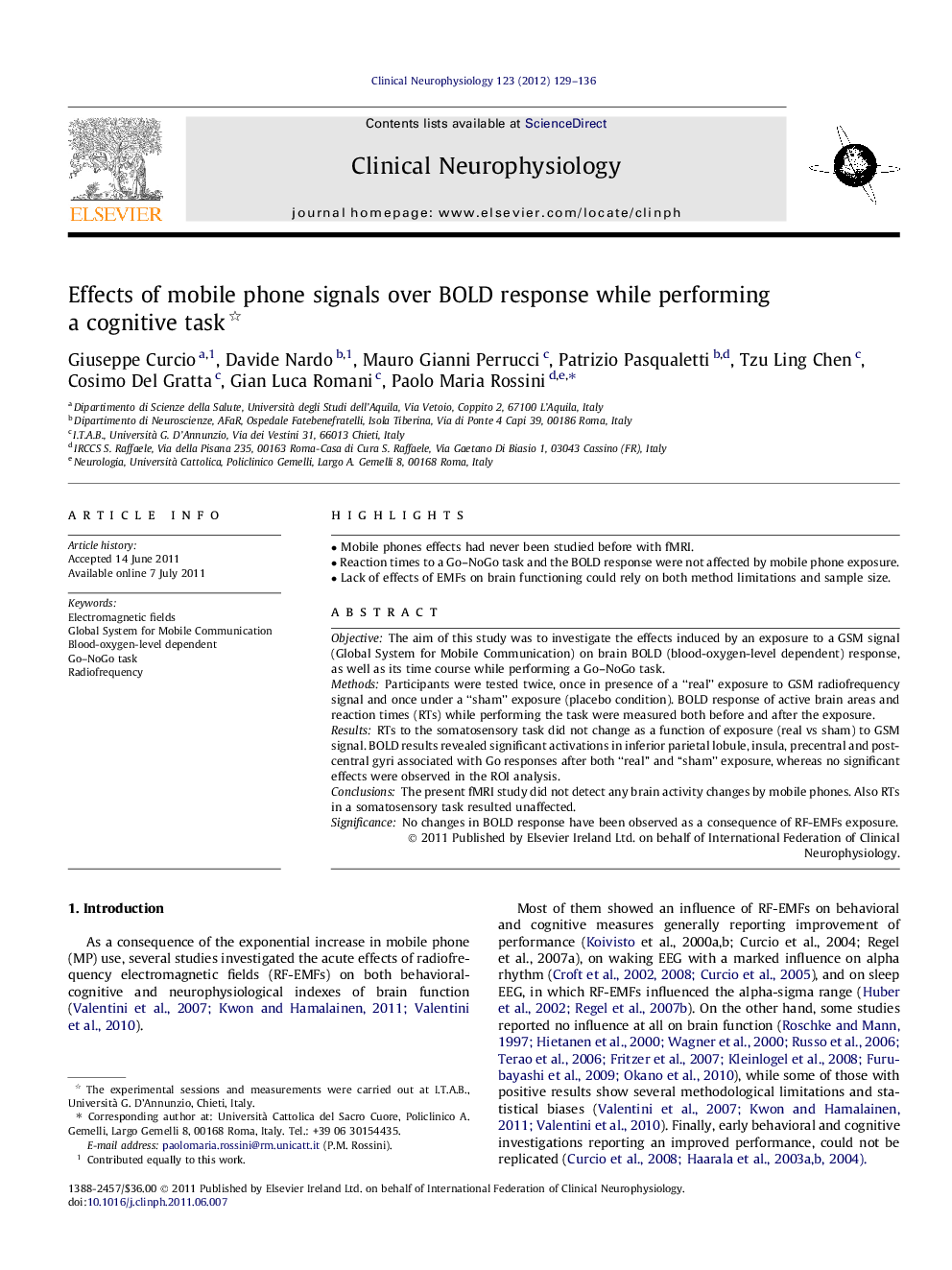| Article ID | Journal | Published Year | Pages | File Type |
|---|---|---|---|---|
| 3043840 | Clinical Neurophysiology | 2012 | 8 Pages |
ObjectiveThe aim of this study was to investigate the effects induced by an exposure to a GSM signal (Global System for Mobile Communication) on brain BOLD (blood-oxygen-level dependent) response, as well as its time course while performing a Go–NoGo task.MethodsParticipants were tested twice, once in presence of a “real” exposure to GSM radiofrequency signal and once under a “sham” exposure (placebo condition). BOLD response of active brain areas and reaction times (RTs) while performing the task were measured both before and after the exposure.ResultsRTs to the somatosensory task did not change as a function of exposure (real vs sham) to GSM signal. BOLD results revealed significant activations in inferior parietal lobule, insula, precentral and postcentral gyri associated with Go responses after both ‘‘real’’ and ‘‘sham’’ exposure, whereas no significant effects were observed in the ROI analysis.ConclusionsThe present fMRI study did not detect any brain activity changes by mobile phones. Also RTs in a somatosensory task resulted unaffected.SignificanceNo changes in BOLD response have been observed as a consequence of RF-EMFs exposure.
► Mobile phones effects had never been studied before with fMRI. ► Reaction times to a Go–NoGo task and the BOLD response were not affected by mobile phone exposure. ► Lack of effects of EMFs on brain functioning could rely on both method limitations and sample size.
